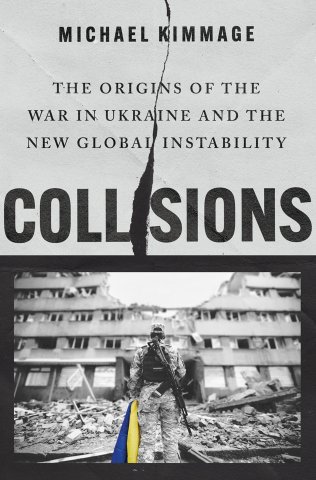The Origins of the War in Ukraine

Speaker: Michael Kimmage (Catholic University of America)
Speaker Session Summary
Russia seeks to dominate both Ukraine’s territory and its political future. Dr. Kimmage analyzed Russia’s motivations for initiating the war, as well as the failures of the United States, Europe, and Ukraine in deterring the invasion. He argued that Russia’s goals extend beyond Ukraine’s sovereign borders, with President Putin aiming to fundamentally reshape the structure of European security. Dr. Kimmage examined why Ukraine was particularly vulnerable to invasion, while other former Soviet states, like Poland, were not. The key factors include Ukraine’s smaller economy, its relatively weak military, and a vast, geographically difficult-to-defend border with Russia. Additionally, unlike Poland, Ukraine did not join the NATO alliance following the Soviet Union’s collapse. Many European countries believed a full-scale Russian invasion was unlikely or even impossible until it occurred. The failure of European states, according to Kimmage, was not peacefully integrating Ukraine into NATO before the invasion, while the US failure was one of deterrence, given its role as the preeminent security guarantor for Europe via NATO.
The United States faces the choice of either increasing or decreasing its support for Ukraine. Enhanced military support or economic pressure could risk escalation, while reducing support might lead to a politically brokered resolution that would not be considered a Ukrainian victory. Dr. Kimmage noted that if the United States maintains its current level of support, the war could continue for years, prolonging the conflict indefinitely. He emphasized that regardless of US actions, the war will likely persist for the foreseeable future, as Ukraine appears determined and able to fight, fueled by the level of violence committed by Russia and foreign aid. Ukraine has also established a diverse network of international support, a factor often seen in case studies where weaker states defeat stronger opponents.
Dr. Kimmage also pointed to potential scenarios where Russia could fracture internally, as evidenced by Wagner’s mutiny in 2023. However, he stressed that despite these possibilities, Putin remains firmly in control, and Russia has managed to build a resilient war-time economy despite strong international sanctions. He concluded by emphasizing that the war is being fought locally, regionally, and internationally. Locally, it revolves around Ukraine’s future as a sovereign state, while regionally, NATO countries are providing Ukraine with financial and military aid to safeguard both Ukraine and European security. Moreover, the level of US involvement makes this conflict a global issue with possible nuclear implications.
Speaker Session Recording
Briefing Materials
Biography: Michael Kimmage is a professor of history at the Catholic University of America and a senior non-resident fellow at the Center for Strategic and International Studies. He is currently the Richard C. Holbrooke Fellow at the American Academy in Berlin.
Comments